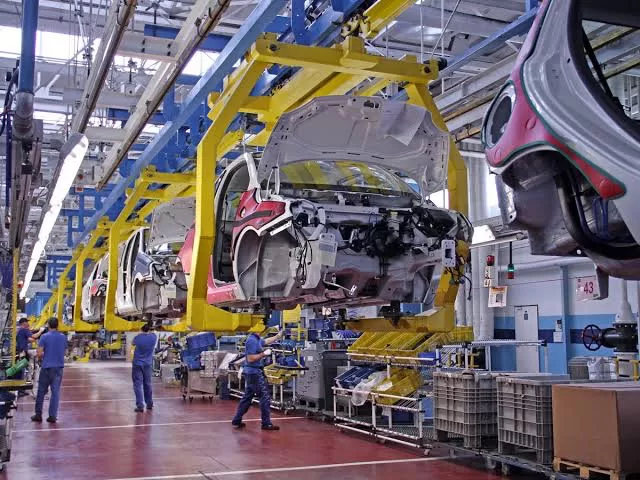Egypt has been undertaking several measures to boost its economy through deepening the local industry by putting incentives that encourage producing complete products or components within the country. On the other side of the equation, Egypt is aiming to increase exports to $60 billion a year by 2025 as part of the government’s new structural reform programme, which would also require increasing products coming out of the country.
Great focus has been put on developing the automotive industry, with the state adopting strategies and taking measures to help automakers locally manufacture vehicles. The National Strategy for Localising the Automotive Industry was launched in 2022 for that purpose.
The strategy aims to cover the needs of the local market and establish Egypt as a main gateway for emerging vehicle markets in Africa.
The strategy also includes the Egyptian Automotive Industry Development Programme (AIDP), which provides the required framework to develop existing car assembling and manufacturing capacities and encourage new investments in this sector.
The programme also provides incentives for localising manufacturing electric vehicles, including local manufacturers and consumers.
Prime Minister Moustafa Madbouli has repeatedly asserted the government’s willingness to provide lands and establish factories, in co-operation with serious investors in this field.
During a visit to the Port Said Industrial Zone last week, the prime minister made an inspection tour in the Pyramids factory opened in May 2020 for manufacturing car tyres and rubber products.
He said Egypt imports a large quantity of tyres, noting that the production volume of the company is expected to cover 25 per cent of local consumption next October.
In February this year, Japanese car parts supplier Yazaki announced commencing the construction of its manufacturing facility in Egypt, with a total investment of €30 million. The facility is expected to be completed by the end of 2024.
Another important step taken for localising the automative and associated industries is that the Suez Canal Economic Zone (SCZONE), the Sovereign Fund of Egypt (TSFE), and the East Port Said Development Company (EPSD) have partnered, under a MoU signed in 2022 for the establishment of EPAZ complex for the manufacture of vehicles and associated supplies in the Suez Canal Industrial Zone, east of Port Said.
The complex is scheduled to produce 75,000 cars annually. It will meet local and regional needs and attract more international automotive companies to manufacture cars in Egypt, according to a statement by the Egyptian cabinet.
Automobile expert and head of the Industry Committee at the Engineers’ Syndicate, Gamal Askar, believes East Port Said will be a mecca for the automotive industry in the region, being a logistical area that includes manufacturing, shipping, and unloading for cars and other goods, such as cement and grains.
“The area has the latest scientific systems and equipment, and these will reduce accidents and minimise time delays and losses, thus decreasing the cost of final products. Unloading grain usually takes about 30 days in the ports, but in East Port Said port the process takes no more than two days,” Askar said.
The exceptional location of the port on the Mediterranean Sea and the entrance of the Suez Canal also facilitate exports to Europe, Africa, and the Far East, he added.
“The East Port Said complex comprises a production line for paints, an assembly line, presses, and the equipment required for manufacturing vehicles. If manufacturers share these lines, services, and facilities, the cost of production will decrease and so will the price of locally manufactured vehicles,” he said.
He added that the facilities will encourage export operations, increase the competitiveness of Egyptian products, and supply the Egyptian market with its automotive needs.




